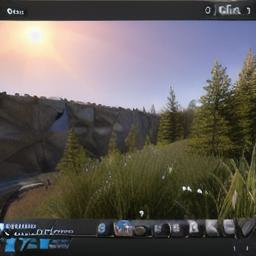Unity Cloud Services is a set of tools that enables developers to build cloud-based games using the popular game engine Unity. With Unity Cloud Services, developers can create games that run seamlessly across different platforms without the need for expensive infrastructure. This article will delve deeper into the features and benefits of Unity Cloud Services, including its cross-platform capabilities, ease of use, scalability, cost-effectiveness, successful game examples, and various tools that come with it.

- What is Cross-Platform Development in Unity?
Unity is designed to be a cross-platform development engine, allowing developers to build games for multiple platforms using a single codebase. This saves developers time and resources compared to building separate games for each platform. With Unity’s cross-platform capabilities, developers can reach a wider audience without having to create new versions of their game for each platform. This makes it an ideal choice for developers who want to build games that run seamlessly across different platforms.
- How does Ease of Use contribute to Unity’s popularity?

Unity is known for its ease of use and user-friendly interface, which simplifies game development and allows even novice developers to build professional-quality games. Unity also provides a vast community of developers who can help you with any questions or issues you may encounter during the development process. This makes it easy for developers to learn and start building games using Unity.
- How does Scalability make Unity an ideal choice for massive multiplayer games?
Unity is designed to be scalable, which means that it can handle large volumes of users and data without performance issues. This makes Unity an ideal choice for building massive multiplayer games that require high performance and reliability. With Unity’s built-in support for dedicated servers and peer-to-peer networking, developers can create seamless multiplayer experiences that are highly scalable and reliable.

- What is the Cost of Unity compared to other game development engines?
Unity is a cost-effective game development engine compared to other engines such as Unreal Engine. Unity provides developers with a free version that can be used for small projects, and also has affordable licensing options for larger projects. The cost of Unity’s license varies depending on the size of your team and the features you need, but it is generally more affordable than other engines in the market.
- What are some examples of successful games built using Unity Services?
There are many successful games built using Unity Services. Some examples include "Angry Birds," "Temple Run," and "PUBG Mobile." These games have millions of users and generate significant revenue through advertising and in-app purchases. These games showcase the power of Unity Services, which can help developers build engaging and profitable games for multiple platforms.
- What are some benefits of using Unity Analytics?
Unity Analytics provides several benefits to game developers, including detailed insights into their game’s performance, real-time analytics, and user behavior tracking. With Unity Analytics, developers can track metrics such as user engagement, retention rates, and in-app purchases, which can be used to optimize the game’s performance and improve player experience. The real-time analytics feature allows developers to identify issues and fix them quickly, improving the overall stability of their game.
- What are some benefits of using Unity Advertising?
Unity Advertising provides several benefits to game developers, including an easy-to-use platform that allows developers to monetize their games through advertising. Developers can choose from various ad formats such as banners, interstitials, and native ads, which can be displayed in their games. Unity Advertising also provides powerful targeting options to ensure that ads are shown only to relevant users, improving the overall effectiveness of the advertising campaign.
- What are some benefits of using Unity Multiplayer?
Unity Multiplayer provides several benefits to game developers, including seamless multiplayer experiences for their games. The tools include support for various networking models such as dedicated servers, peer-to-peer networking, and client-server networking, which allows developers to create high-quality multiplayer games that run smoothly on multiple platforms. Unity Multiplayer also provides built-in support for load balancing, which ensures that all players have a smooth gaming experience, even during peak usage periods.
- What are some benefits of using Unity Cloud Services?
Unity Cloud Services is a set of tools that enables developers to build cloud-based games using the popular game engine Unity. With Unity Cloud Services, developers can create games that run seamlessly across different platforms without the need for expensive infrastructure. This saves developers time and resources compared to building and maintaining their own servers. Unity Cloud Services also provides built-in support for scalability and reliability, making it an ideal choice for massive multiplayer games that require high performance and reliability. Additionally, Unity Cloud Services provide easy integration with other cloud services such as Amazon Web Services, Microsoft Azure, and Google Cloud Platform, which allows developers to easily deploy their games in the cloud.
In conclusion, Unity Cloud Services is a powerful set of tools that enables developers to build cloud-based games using the popular game engine Unity. With its cross-platform capabilities, ease of use, scalability, cost-effectiveness, successful game examples, and various tools, Unity Cloud Services is an ideal choice for developers who want to build games that run seamlessly across different platforms.



